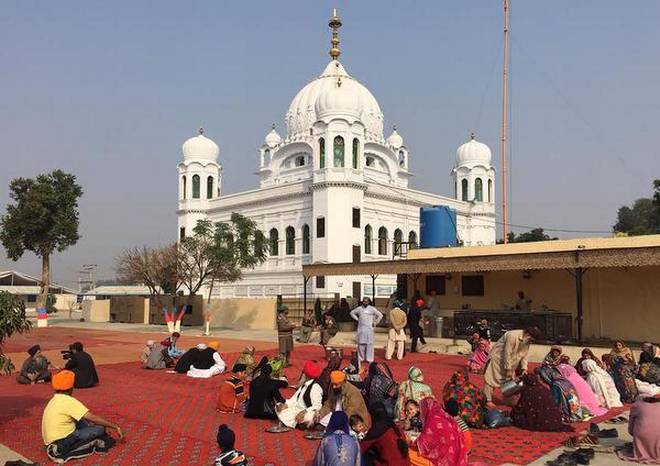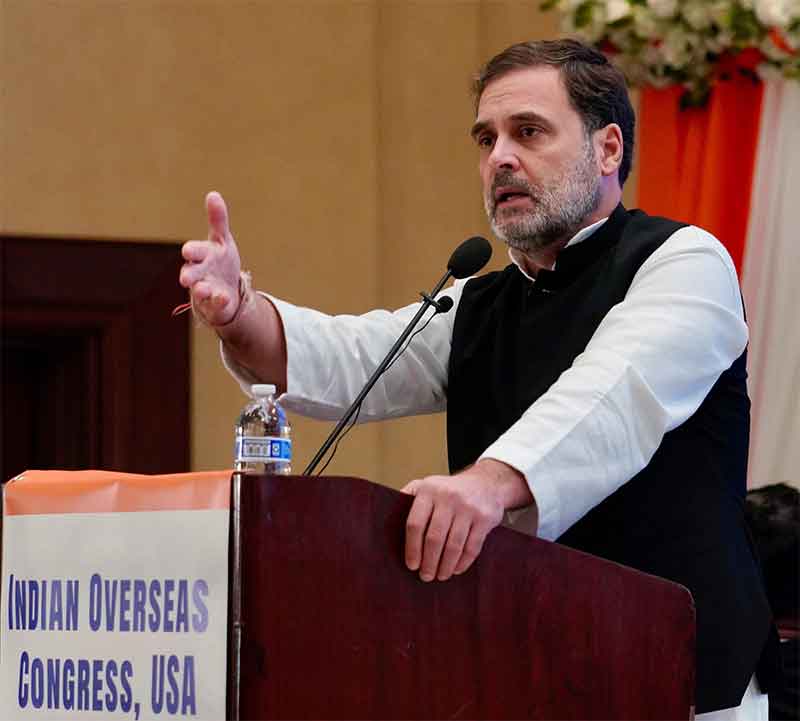
Over the past few years, the government in India has repeatedly marginalized and suppressed Sikh identity. The decision to shut down the Kartarpur Corridor and the actions taken to target Sikh activists prove that the government is making a planned effort to threaten Sikhism, Sikh political aims and Sikh culture. This situation is not limited to a few incidents or safety issues; it comes from a strategy by the government to dominate the minority community by claiming state power and nationalism.
Kartarpur Corridor was inaugurated in 2019 and brought hope and unity among Sikhs everywhere. Because of the agreement, pilgrims from India and other countries could visit Gurdwara Darbar Sahib in Pakistan, one of the main Sikh shrines, without difficult restrictions. Yet, India’s unilateral decision to close this corridor in 2025 — citing vague security concerns following Operation Sindoor — exposes a stark contrast in intent and respect for Sikh identity compared to Pakistan, which kept its side of the corridor open, reaffirming its commitment to religious freedom.
This action was not simply about closing the place but aimed to hurt the sentiments of Sikhs. The timing and the manner in which India enforced this closure suggest a deliberate sidelining of Sikh religious rights. Prominent Sikh religious authorities, including Akal Takht Jathedar Giani Kuldeep Singh, condemned the move, emphasizing the spiritual trauma inflicted on the Sikh community. By shutting down the corridor without bilateral consultation, India not only disrupted a fragile peace mechanism but also sent a clear message: Sikh identity and their sacred traditions remain expendable within the Indian nationalist project, especially under the Bharatiya Janata Party’s (BJP) Hindutva-driven agenda.
But the assault on Sikh identity extends far beyond sacred sites. In Canada, the assassination of Hardeep Singh Nijjar in June 2023 cast an ominous shadow over India’s international conduct. Canadian Prime Minister Justin Trudeau publicly stated that there were credible allegations implicating the Indian government in the killing of Nijjar, a Sikh leader advocating for human rights and Sikh political aspirations. This unprecedented accusation escalated diplomatic tensions and brought global scrutiny on India’s extraterritorial operations targeting Sikh activists. Following Nijjar’s death, the sudden passing of UK-based Sikh activist Avtar Singh Khanda amid allegations of harassment by Indian agencies further raised alarm bells about New Delhi’s transnational repression tactics.
Such measures are not confined to Canada or the UK. In 2024, the U.S. Department of Justice charged an Indian government employee, Nikhil Gupta, in a plot to assassinate Gurpatwant Singh Pannun, a Sikh separatist leader and dual U.S.-Canadian citizen. This brazen conspiracy on foreign soil reflects a dangerous escalation, where India’s domestic policy of suppressing Sikh dissent morphs into international violations of sovereignty and law. These actions suggest that for India, Sikh identity activism is treated less as a legitimate expression of minority rights and more as a subversive threat to be eradicated — wherever it emerges.
India’s internal politics also reflect this marginalization. The Sutlej-Yamuna Link (SYL) Canal controversy illustrates how water, a fundamental resource for Punjab’s agrarian Sikh-majority population, is weaponized by the BJP to weaken the region’s economic and cultural base. The SYL Canal project aims to divert Punjab’s River waters to Haryana and Rajasthan, BJP-ruled states with no historical claim to these resources. Punjab’s unanimous rejection of the canal through its assembly resolution in 2020 was overruled by the Supreme Court — itself increasingly viewed as politically influenced under BJP dominance — forcing compliance. This is not just a dispute over water; it is a direct assault on Punjab’s livelihood and, by extension, on the heartland of Sikh identity. Water, which sustains Punjab’s people and their religious way of life, is turned into a tool of political coercion, deepening resentment and alienation.
The scars of 1984 remain raw within the Sikh psyche. The anti-Sikh riots, which followed Prime Minister Indira Gandhi’s assassination, resulted in thousands of Sikh deaths and remain one of the darkest chapters in India’s democratic history. The decades-long failure to deliver justice for the victims has entrenched mistrust and trauma within the Sikh community. Perpetrators have largely escaped accountability, many holding powerful positions, reinforcing a perception of state complicity and systemic discrimination. This unresolved injustice continues to fuel Sikh grievances and drives calls for independent investigations and reparations, which India’s ruling establishment repeatedly rebuffs.
To understand the implications of these actions, one must recognize that India’s approach to Sikh identity is rooted in a majoritarian nationalist ideology, often identified with Hindutva. The BJP’s rise has coincided with an erosion of secular principles and increased intolerance toward minority identities. Sikhism, with its distinct religious, cultural, and political traditions, challenges the homogenizing nationalist narrative. The targeting of Sikhs, therefore, is not accidental but strategic, aimed at consolidating a monolithic national identity that excludes dissenting minorities.
This war on Sikh identity is not only about control but also about erasure. Denying access to sacred spaces like Kartarpur, assassinating activists abroad, diverting vital resources, and suppressing political expression form a constellation of policies that marginalize Sikh existence. India’s actions betray its constitutional commitments to religious freedom, minority rights, and democratic pluralism. They erode trust, foment conflict, and undermine India’s image as a diverse and tolerant society.
In stark contrast, Pakistan’s maintenance of the Kartarpur Corridor and respect for Sikh pilgrimage rights presents a nuanced counter-narrative. Despite being a Muslim-majority state with a troubled history with India, Pakistan’s gesture toward Sikh religious freedom suggests that respect for minority rights is possible even amid political adversities. It calls into question India’s professed commitment to secularism and religious harmony.
Ultimately, India’s ongoing suppression of Sikh identity risks alienating not only Sikhs within its borders but also the global Sikh diaspora, whose political and economic influence continues to grow. The failure to address legitimate Sikh grievances, coupled with aggressive state actions, could escalate tensions and fuel cycles of mistrust and resistance. India’s democratic ideals demand a course correction: acknowledgment of Sikh rights, transparent justice for historical wrongs, and sincere efforts to preserve Sikh religious freedoms and cultural autonomy.
The Kartarpur Corridor’s closure is emblematic of a larger war being waged — not on terrorism or separatism alone, but on the very soul of Sikh identity. Until India moves beyond policies of exclusion and intimidation toward genuine pluralism and respect for minority rights, its relationship with the Sikh community will remain fraught, marked by conflict and heartbreak rather than coexistence and mutual respect.
Subscribe to Our Newsletter
Get the latest CounterCurrents updates delivered straight to your inbox.
Muhammad Wasama Khalid is pursuing MPhil degree in International Relations at the National Defense University (NDU). He has a profound interest in history, politics, and current affairs. He tweets at @WasamaKhalid and can be reached at [email protected].















































